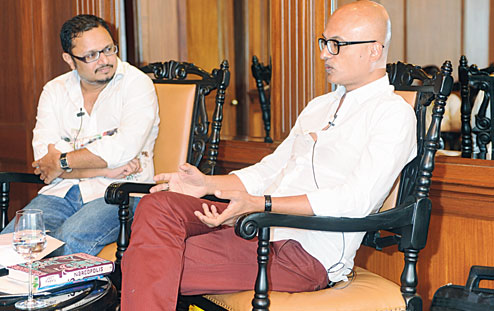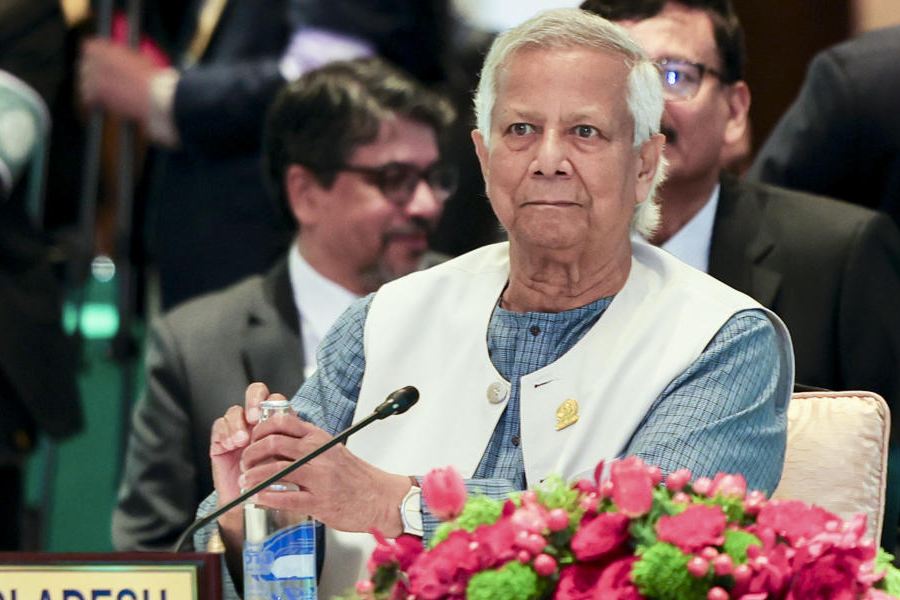 |
| Sharmila Tagore launched A Life Apart at the Jaipur Literature Festival on January 28. “It’s a riveting read and I can’t wait to get back to the book,” she smiled. |
Does “feminist” equal to “anti-man”? I found the semblance of an answer not in Virginia Woolf or Germaine Greer but in a lady from our very own Calcutta.
Titled A Life Apart, it is the English translation of Prabha Khaitan’s Hindi autobiography Anya se Ananya by writer-editor Ira Pande. Born in 1942, Prabha Khaitan started a successful leather export business, wrote novels and poetry and translated Simone De Beauvoir’s The Second Sex into Hindi. Later she set up the Prabha Khaitan Foundation for social work. She passed away in 2008.
Prabha writes with riveting honesty about her lonely childhood, her difficulty in fitting into the Bengali milieu of Presidency College, her struggles in America and of her relationship with a well-known doctor in Calcutta, a man 22 years her senior, married and the father of five.
It would be prudish to gloss over Prabha’s life-long relationship with Dr Saraf that she writes about with such candour. As author Namita Gokhale puts it in her foreword, “Sometimes it cuts too close to the bone for middle class comfort, unsettling the safety net and entitlements of complacency and convenience.”
At one point, Prabha writes: “My dependence on him now was not just a physical one, it was a peculiar kind of sickness that I came to look upon as love.”
Yet, this “sickly dependent” woman’s account of how she fought her conservative Marwari moorings to get herself a college education and financial independence is hugely inspiring, particularly for women of today, for whom higher studies and a career are a given.
Calcutta figures prominently in A Life Apart, from Presidency College to Magnolia, coupled with Prabha’s keen eye for the political and social doings around her — campus agitations, workers’ movements, Emergency, the Iran-Iraq war....
A Life Apart was released at the Jaipur Literature Festival recently. Urvashi Butalia, who runs the feminist publishing house Zubaan that brought out the book, said that in Prabha’s words, one could easily see the struggle of a woman to be fair to herself and the man in her life, “whom she cares for and respects but also feels revulsion and anger towards”.
Ira said she was struck by the personality of Prabha and took up the translation work despite her busy schedule also because Prabha was friends with her mother, the prolific Hindi writer Shivani Pande.
A Life Apart, said Namita, is “a tribute to freedom”. One agrees heartily. But as a new fan of Prabha Khaitan, I just wish she didn’t end her autobiography with this line: “He was called one of Calcutta’s most eminent citizens, a philanthropist and a brilliant doctor who was survived by his wife and children. Of a woman called Prabha Khaitan, there was no mention.”
When Prabha Khaitan didn’t need social sanction to be with the man she loved when he was alive, one wonders why she needed it after he died. Is it a silent lesson, a whisper of wisdom, she left behind for future generations?











